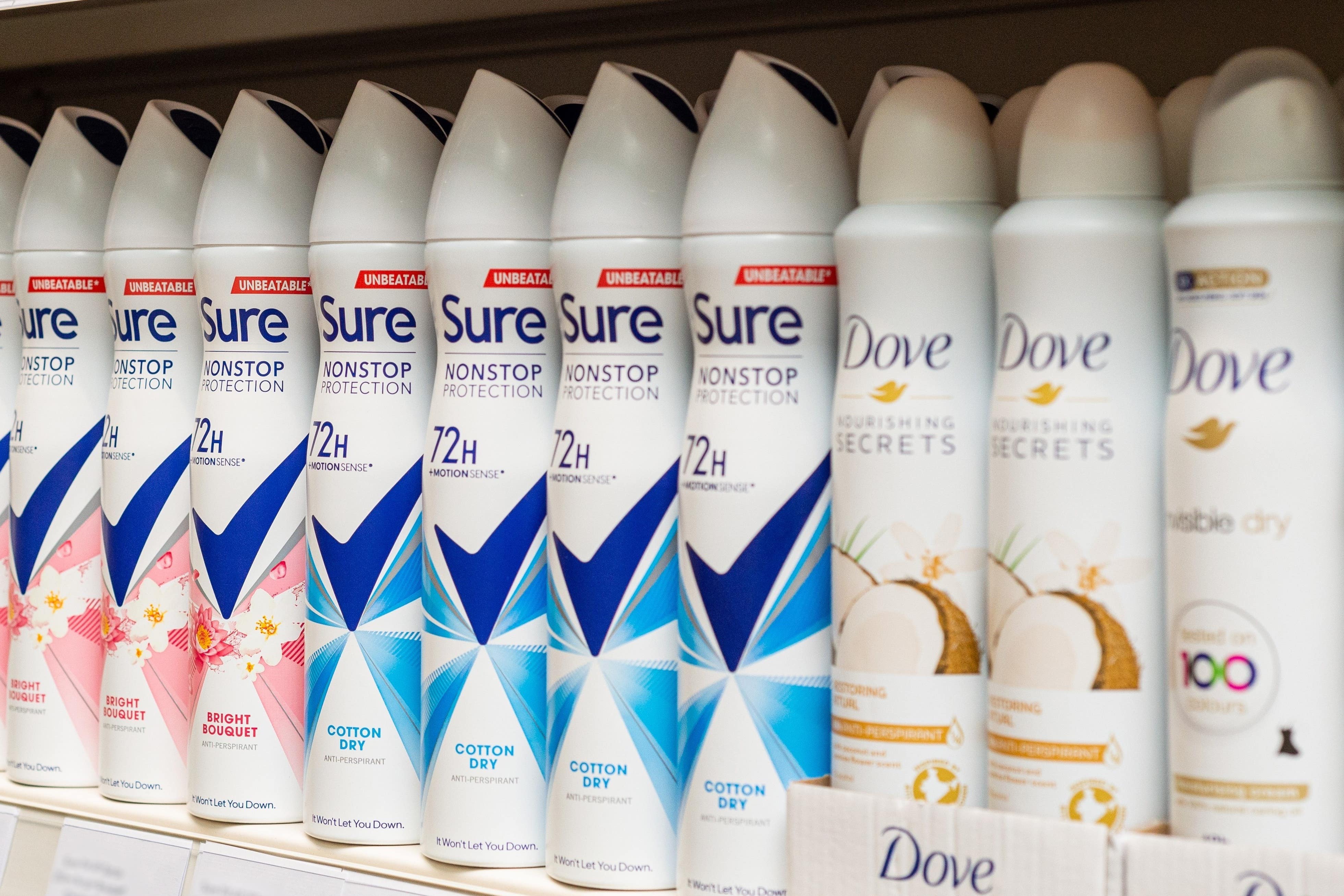Unilever boosted by high-margin products despite consumer pressure hitting sales
Shares in the consumer goods giant, which makes Sure deodorant and Hellman’s mayonnaise, jumped as it posted an operating margin rise of nearly 20%.

Your support helps us to tell the story
From reproductive rights to climate change to Big Tech, The Independent is on the ground when the story is developing. Whether it's investigating the financials of Elon Musk's pro-Trump PAC or producing our latest documentary, 'The A Word', which shines a light on the American women fighting for reproductive rights, we know how important it is to parse out the facts from the messaging.
At such a critical moment in US history, we need reporters on the ground. Your donation allows us to keep sending journalists to speak to both sides of the story.
The Independent is trusted by Americans across the entire political spectrum. And unlike many other quality news outlets, we choose not to lock Americans out of our reporting and analysis with paywalls. We believe quality journalism should be available to everyone, paid for by those who can afford it.
Your support makes all the difference.Unilever has posted a large increase in margins after its more lucrative products sold well in the face of a global cost-of-living crisis.
Shares in the Anglo-Dutch consumer goods giant rose on Thursday as it hailed a 19.6% rise in operating margin across the group.
Consumer goods companies are in a battle to get consumers buying more products, often with discounts and promotions, after people have been buffeted by higher costs of living in many global economies.
Unilever, which makes Sure deodorant, Dove soap and Hellmann’s condiments, among many other brands, did not meet market forecasts on sales volumes, which rose 3.9%, behind expectations of 4.2%.
But its massive rise in margin helped it turn a 5.9 billion US dollar (£4.6 billion) operating profit during the period, a 7% year-on-year rise, which helped cheer on investors. Unilever’s share price rose 6% in morning trading on Thursday.
This was partly due to lower commodity prices and previous price rises due to high inflation in recent years, but analysts said it was also driven by strong sales of high-margin products, despite the economic environment.
There is much to do, but we remain focused on transforming Unilever into a consistently higher-performing business
Unilever refers to its leading products as “power brands”. These include Hellman’s and Knorr stocks and seasonings, which it said brought in more than 4 billion US dollars (£3.1 billion) in combined turnover alone.
Turnover across the group was 31.1 billion US dollars (£24.1 billion), a 2.3% rise on the same period last year.
It comes amid a challenging backdrop for the company, which is partway through a turnaround effort that includes plans to cut about a third of all office jobs in Europe by the end of 2025.
It also plans to sell its ice cream business over the same time period, which includes the Wall’s, Ben & Jerry’s and Magnum brands.
Unilever chief executive Hein Schumacher said the company has made progress on “high-quality sales growth and gross margin expansion”.
He said the turnaround plan involves “doing fewer things, better and with greater impact”.
“The implementation of a comprehensive productivity programme and the separation of Ice Cream are key to delivering on that commitment and we are progressing at pace.
“There is much to do, but we remain focused on transforming Unilever into a consistently higher-performing business.”
Chris Beckett, head of equity research at Quilter Cheviot, said the increase in margins is a “big win” for Unilever and that it has “done well” to sell more high-margin products.
He added that emerging markets are “doing a lot of the heavy lifting in terms of growth” for the company.
Unilever said it expects annual sales growth to be between 3% and 5%, maintaining its previous forecast, while operating margin is expected to be at least 18%.
It added that the conflict in Gaza has hit sales in countries with majority Muslim populations such as Indonesia, which usually accounts for about 4% of the company’s sales.
“Some consumers avoided the brands of multinational companies in response to the geopolitical situation in the Middle East,” Unilever said.